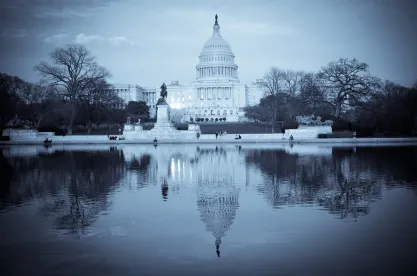With President Biden charting a fundamentally different course in labor relations, employers should monitor developments taking place. In less than three weeks, Washington saw President Biden’s firing of National Labor Relations Board (“NLRB”) General Counsel Peter Robb, removal of Robb’s Deputy General Counsel Alice Stock, and appointment of Peter Sung Ohr as acting General Counsel (seen as a step to creating a more union-friendly NLRB). Mr. Ohr promptly announced rescission of 10 individual policy directives issued by his predecessor.
On February 4, 2021, Congressional Democrats followed these actions by introducing the Protecting the Right to Organize Act of 2021 (“PRO Act”), which is almost identical to a similar bill passed by the House last March. The 2021 version of the PRO Act retains many of the controversial and far reaching amendments to the National Labor Relations Act (“NLRA”).
Among the proposed amendments:
-
Joint Employer. The bill restores the controversial joint employer test set forth by the NLRB 2015 Browning-Ferris decision (362 NLRB 1599). Browning-Ferris expanded employer liability by broadly interpreting joint employer status to include situations involving “direct and indirect control” including “reserved authority” in contracts and conduct. The Trump NLRB reversed Browning-Ferris, codifying its decision in a formal rule (NLRB Rules & Regulations §103.40), which the PRO Act would nullify.
-
Adoption of the Independent Contractor “ABC” Test. Despite widespread criticism of California’s strict “ABC” test – which significantly expands the likelihood of independent contractors being deemed “employees” – the PRO Act incorporates the test into the NLRA. Under the Act, an individual would be classified as an “employee” unless: “(A) the individual is free from control and direction in connection with the performance of the service, both under the contract for the performance of service and in fact; (B) the service is performed outside the usual course of the business of the employer; and (C) the individual is customarily engaged in an independently established trade, occupation, profession, or business of the same nature as that involved in the service performed.”
-
Supervisory Status. The PRO Act would also expand coverage of the NLRA by changing the definition of “supervisor” under the NLRA, requiring putative supervisors to engage in supervisory duties for a “majority” of their time. The bill removes supervisory authority to assign work and direct employees responsibly as indicia of supervisory status.
-
NLRB Election Rule Rollback. The proposed law codifies the NLRB’s previous “micro-unit” rule (Specialty Healthcare, 357 NLRB 934 (2011)), statutorily establish “quickie” elections, allows the union to decide if the election will be manual or by mail ballot, among other far-reaching changes.
-
Preempt State “Right to Work” Laws. Although 27 states have adopted a “right to work” statute, the PRO Act pre-empts right to work laws by permitting contract terms requiring all employees to pay to the union fees for the cost of representation, collective bargaining, contract enforcement, and “related” expenditures.
-
Bar class action waivers in arbitration agreements. The bill would also bar class action arbitration waivers in mandatory arbitration agreements despite the Supreme Court’s ruling approving such clauses. See Epic Systems Corp. v. Lewis, No. 16-285; Ernst & Young LLP et al. v. Morris et al., No. 16-300; National Labor Relations Board v. Murphy Oil USA, Inc., et al., No. 16-307 (May 21, 2018).The Supreme Court ruled arbitration agreements providing for individualized proceedings as enforceable and are not barred under the NLRA. Subsequently, the NLRB broadly construed the Epic Systems cases, confirming that an employer may lawfully issue a new or revised mandatory arbitration agreement containing a class- and collective-action waiver specifying that employment disputes are to be resolved by individualized arbitration, even if it was in response to employees opting into a collective action (such as a wage lawsuit). See Cordúa Restaurants, Inc., 368 NLRB No. 43 (Aug. 14, 2019). The NLRB also concluded that the NLRA does not prohibit an employer from threatening to discharge an employee who refuses to sign such an agreement.
-
Compulsory Interest Arbitration. The Act mandates immediate collective bargaining for 90 days and, if no agreement is reached, requires binding interest arbitration of contract terms, thus directing an arbitrator to determine the terms of a two-year collective bargaining agreement.
-
Work Stoppages. The PRO Act bans employer lockouts and the permanent replacement of strikers while allowing intermittent strikes.
-
Enhanced Unfair Labor Practice Remedies. The bill allows “unfair labor practice” (ULP) claims to be brought as civil actions in court. It also adds fines and liquidated damages (into the six figures) as remedies for UPL, including imposing personal liability on corporate directors and officers
The Pro Act poses numerous challenges for most employers, including some unionized employers. Its progress is bound to be a major political event.





 />i
/>i

